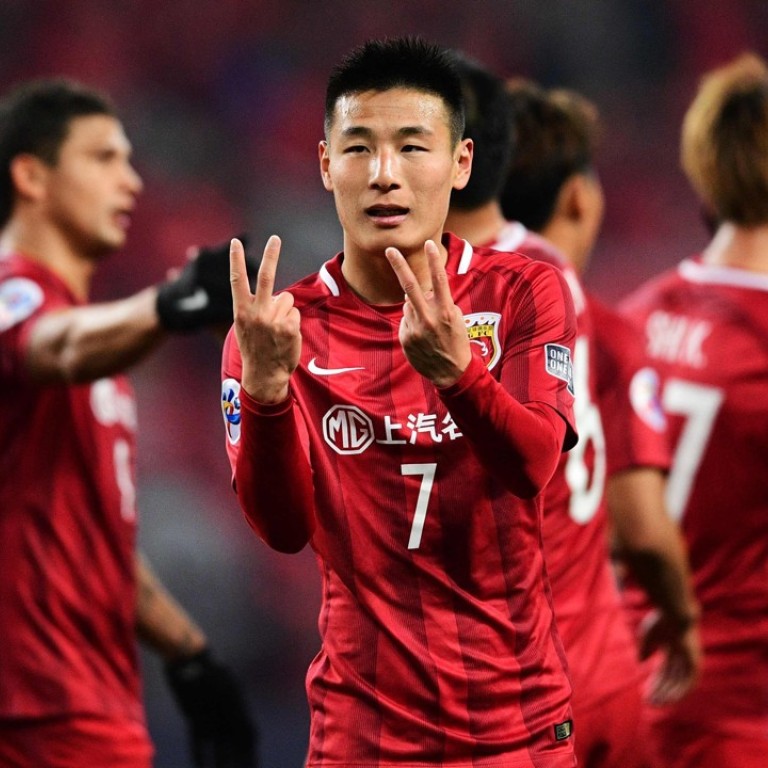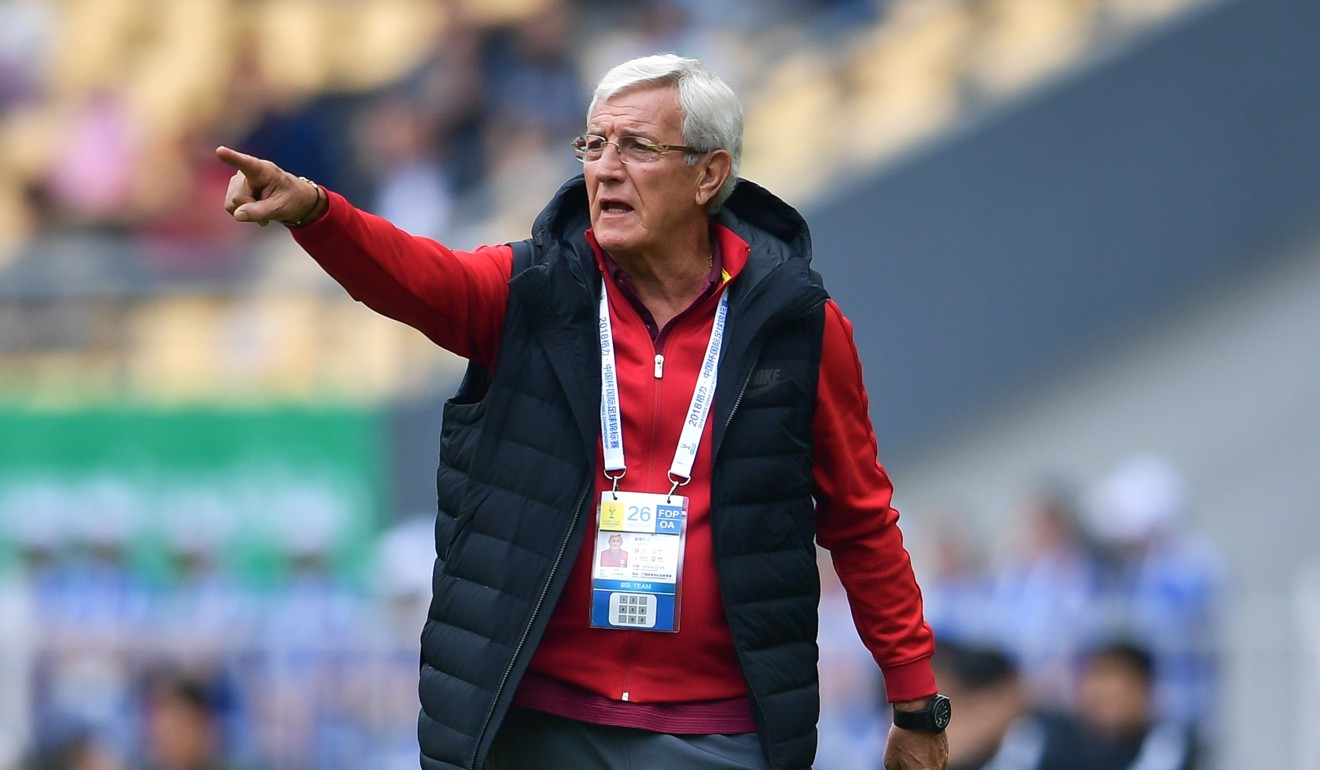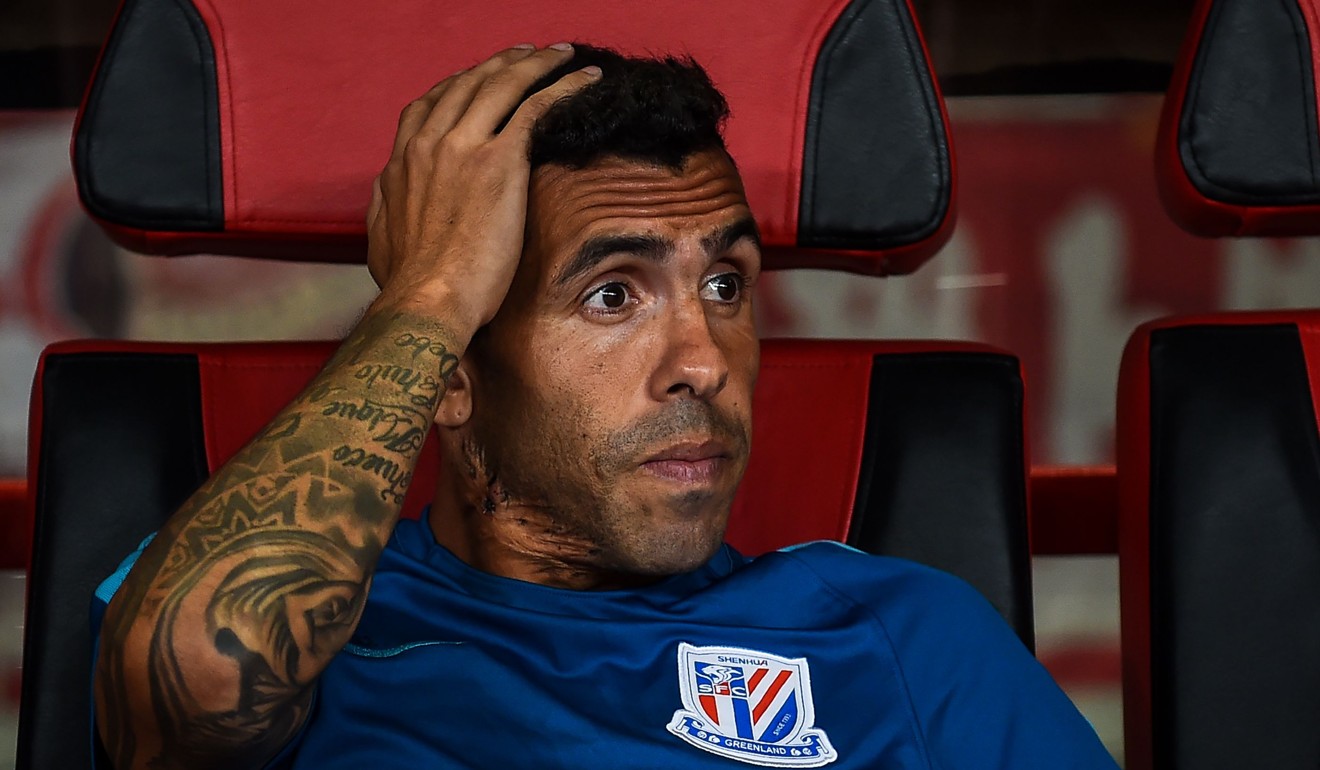
Chinese Football Association to introduce salary cap amid raft of financial constraints but 100 per cent tax stays
- Several caps will reportedly be in place for 2019 season onwards as CFA looks to contain spending
- Players forced to fall in line ahead of next campaign while bonuses will also be curtailed
Now the finer points have emerged – there will be four affected areas, according to Xinhua, and they will be officially announced in the upcoming China Football Association Professional Club Financial Supervision Regulations.
These limit investment by owners, which will see the limit lowered year-on-year from 2019 to 2021, while clubs are expected to hire outside analysts and break even.
The salary cap will affect domestic players the most as clubs in the Chinese Super League and the two tiers below will see wage expenditure limited to a proportion of their total expenditure.
This means that domestic players are expected to sign new contracts with their clubs before next season.
Further to that, bonuses will be set and announced before the season.
In May this year, the CSL’s bottom side Guizhou Zhicheng reportedly incentivised their players with a cash bonus to win the next two games – and a collective fine of 1 million yuan if they lost. The club, who finished the season bottom of the table, denied this.
Cash bonuses will be forbidden under the new rules.
The transfer rules introduced ahead of last season will remain unchanged, with a 100 per cent transfer tax for foreign players over 45 million yuan, and for Chinese players over 20 million yuan.
Xinhua also reported that player contracts will be standardised to cut down on tax evasion.
These moves follow the recent pattern of trying to cut down on spending in Chinese football, after the headline expenditure that saw big name players and managers flock to the country in recent years.
Outgoing China national team manager Marcello Lippi, whose side drew 1-1 with Palestine on Tuesday night, is among the highest-paid coaches in the world.

What effect the changes will have remains to be seen. Last season Beijing Guoan decided to forge ahead with the signing of striker Cedric Bakambu even with extra outlay because of the tax rules.
Elsewhere, some of the foreign stars are reported to be among the highest-paid in world football, one of the key incentives for them to sign for Chinese clubs.
Similarly, because of the limits on foreign players in China, domestic players are overpaid.

This enforced renegotiation of their contracts ahead of next season could mean they look overseas.
Major League Soccer in the US has a salary cap but they are unusual in football leagues globally, although Uefa president Aleksander Ceferin has discussed the implementation of one in Europe to follow on from their introduction of Financial Fair Play rules.
Fifa, the global governing body, has also vowed to tackle spending in the transfer market and has raised the subject of salary caps linked to revenue.
The Chinese FA has a long history of implementing rules that confound fans.
Most recently they took 55 under-25 players for a military training camp in the middle of the season.

